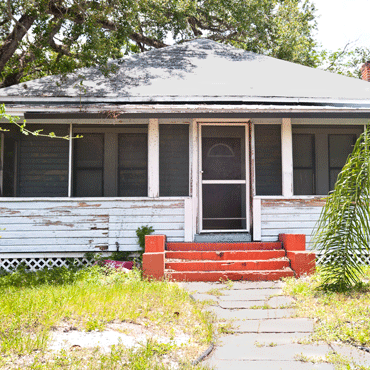
In a number of cities across the country, neighborhood revitalization has been stymied by the impact of blight. Whether it's in the form of abandoned properties, houses in severe disrepair, or vacant homes, blight is a major cause of what's become known as the "appraisal gap"—the situation in which the cost of rehabilitating a home is greater than the home's post-construction value. The appraisal gap can hamper the recovery of a city's housing market and foster an environment for bottom-feeding investors, who build up large rental portfolios by buying up foreclosed homes that were previously owner-occupied.
During the housing crisis, the temporary Neighborhood Stabilization Program provided gap financing that enabled housing developers to build or rehab a high volume of single-family homes. But what approaches are available to help fill the gap now?
Experts will highlight two innovative programs and a policy strategy that offer working solutions to address the appraisal gap and mitigate the impact of blight, vacancy, and abandonment in distressed communities across the country.
Presenters:
- Kim Graziani, vice president and director of national technical assistance for the Center for Community Progress, will provide a national perspective on neighborhood blight.
- Steve Lockwood, executive director of Frayser Community Development Corporation in Memphis, will share an analysis showing that his organization increased home values $6 for every $1 it invested in fighting blight.
- Krysta Pate, program director for Detroit Home Mortgage, will discuss a new program her organization designed to address the appraisal gap in a scalable manner.
- Matt Josephs, senior vice president of policy for LISC (Local Initiatives Support Corporation), will describe efforts to create a federal affordable homeownership tax credit that will support the development and renovation of housing in distressed neighborhoods.
Register for the November 2 webinar, which takes place at 3:00 p.m. ET. Participation is free, but registration is required.
The Connecting Communities® webinar series is a Federal Reserve System initiative intended to provide a national audience with timely information on emerging and important community and economic development topics. All webinar sessions are recorded and archived on the Connecting Communities® website. For more information about this series, email communities@stls.frb.org. For more information on the Federal Reserve's community development work, visit FedCommunities.org.



